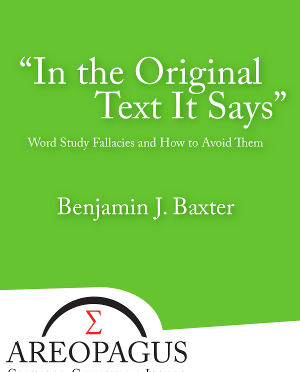(From Dave Black Online, Used by Permission)
9:18 AM Good morning, bloggerdom! Greek teachers love to debate the marks of a good sermon. Some say it’s perfectly okay to use Greek from the pulpit. Others (myself included) think it’s quite unnecessary. Sproul’s famous dictum (“A great preacher is like an iceberg: you see only 10 percent, but underneath you sense the 90 percent”) suffices for me. Last night I was listening to a sermon on the radio. As the speaker began to use Greek in his sermon, he excused himself by saying, “Greek is far more expressive than English” (which it is not). At one point he “corrected” the translation he was reading from, noting that “here the Greek has ‘He emptied Himself’” — which is precisely what many English versions have as well. Unreflective use of Greek can emasculate the message to the point of ineffectiveness. It can make you look foolish and pedantic, and can lead people to distrust the usefulness of their own English Bible translations. Not long ago I served as the editor (along with my colleague Allan Bevere) of a book called “In the Original Text It Says.” The publisher’s blurb reads as follows:
When you hear the words “in the original text it says” or “in the original text this means,” it’s time to be wary. Those words often provide the introduction to misleading information. But how can the hearer discern just what is correct and what is misleading? How can pastors avoid giving their congregations misleading information?
I could write at length about all of the exegetical fallacies unearthed in this marvelous little guide to exegesis. I must also mention the ground-breaking work by my friend Moisés Silva called Biblical Words and Their Meaning. Incidentally, such books can be marvelous ways to nurture younger Christians. But one thing is sure: Those who may know very little about the Christian faith will not be helped very much by over-exegesis.

